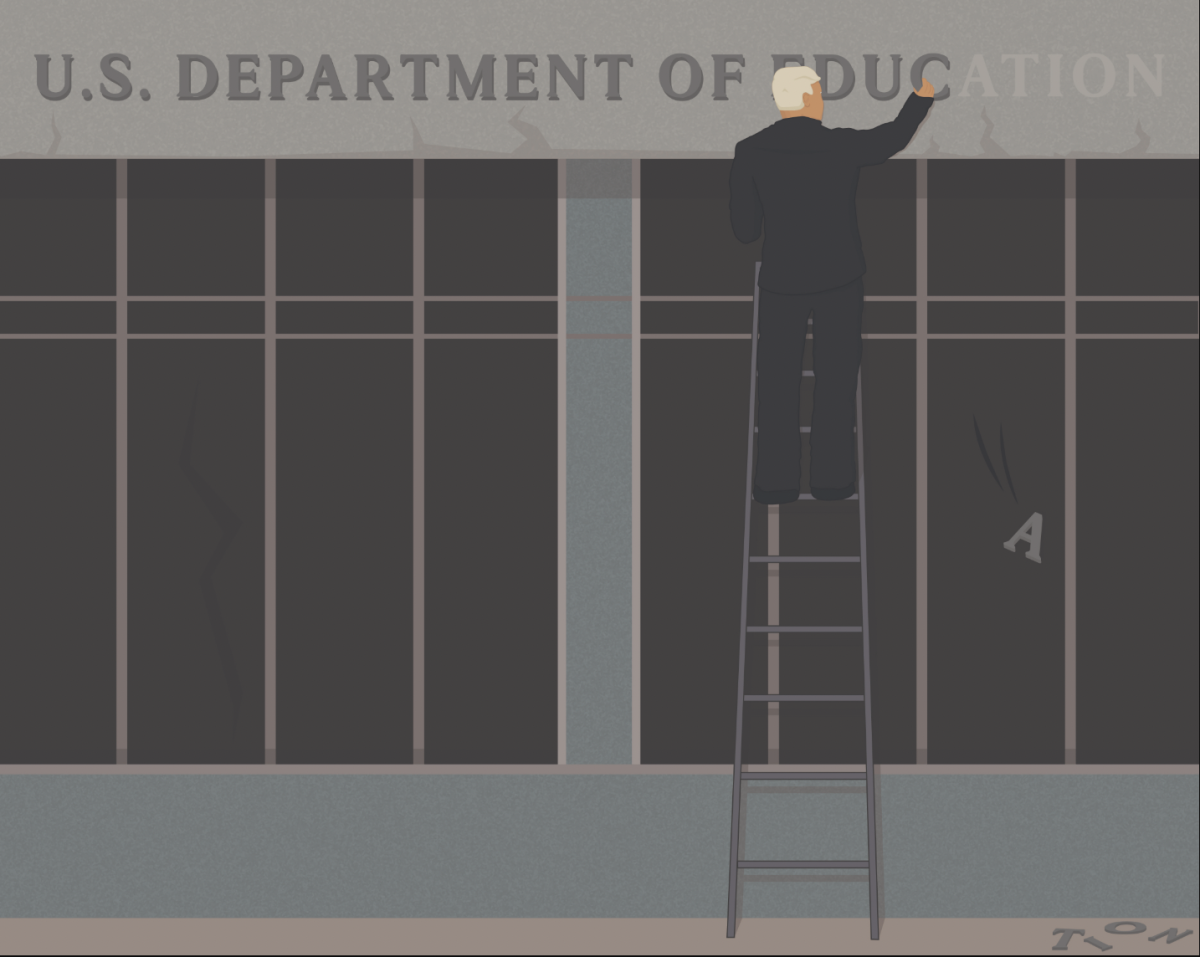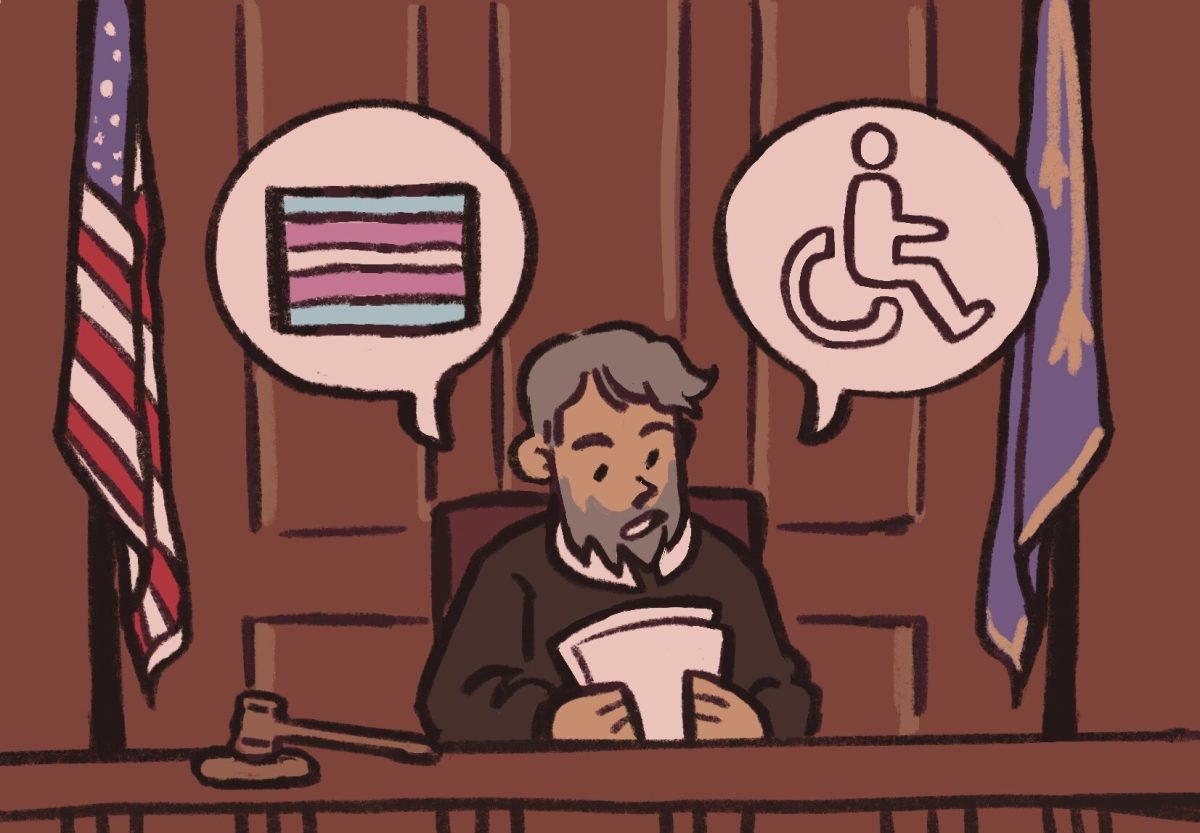Over the month of October, Student Government focused on removing its Parliamentarian Cody DeSalvo only to end up reinstating him soon after. Instead of playing petty politics, students’ governing body should be focusing on what the current administration’s platform spoke of in February: Diversity, inclusion and campus safety.
The dispute began Oct. 5 when Senate Leader Quintin Lorenz made a public request for Vice President Andrew Florence to send attendance records to him and DeSalvo. The following week, Senator Matthew Smith drafted a “Vote-of-No-Confidence” resolution to remove DeSalvo as parliamentarian, the role responsible for keeping order at meetings, assisting with debate and discussion and completing tasks assigned by the chair of the Senate or the Senate itself.
A Vote-of-No-Confidence is typically presented as a way to seek a majority vote against a policy or another Senate member.
Smith’s “Vote-of-No-Confidence” was in response to what he calls a wrongful complaint against Florence, which he says ultimately created a conflict of interest in DeSalvo’s ability to hold the office of parliamentarian. But the real conflict of interest was that Smith’s no-confidence vote was evenly divided between people who supported Florence and people who did not, which enabled Florence to have the final vote on whether or not to remove DeSalvo from office.
In an Oct. 26 meeting, DeSalvo was removed with a 14-13-2 vote, with Florence breaking the tie. However, DeSalvo was reinstated after filing an injunction request and additional complaint with the Student Government Supreme Court.
Whatever animosity between the administration and DeSalvo must come to an end. The time period in which this drama unfolded was a time period senators could have been writing and proposing legislation.
DeSalvo says he has been working on a 15-day notice for tuition and fee increases and a campus-wide preferred naming and pronoun policy. He says he has also been working on legislation to eliminate SAT/ACT scores as a requirement for university admission, increase the environmental service fee by $1 and implement a fall break starting in 2023.
“It was all a big distraction, and I’ve got seven or eight pieces of legislation I’ve been working on on the sidelines, and I had to stop that for four weeks so I could deal with the petty politics of it all,” DeSalvo said.
Student Government should be focused on completing tasks within its power that will benefit the student body. This display of petty conflict benefits no one.
Since Valentinis-Dee and Florence were elected into office, Student Government has managed to pass two resolutions calling on Texas State to expand COVID-19 testing and mental health outreach, respectively. Student Government needs to be consistent in those efforts.
Student Government has direct access to the university administration, which is why its role on our campus is so important. Weekly Student Government meetings should always consist of productive conversations that translate to meaningful action—about things like COVID-19 testing and mental health outreach.
In the past, Student Government has passed productive legislation and initiated dialogue that allowed students to voice their ideas and concerns.
Students felt that menstrual products should be easily accessible on-campus. So, in 2018, the Connor Clegg administration (which did have controversies of its own) first introduced (and passed) the Menstrual Availability Act, a hygiene product policy aimed to place menstrual products in campus bathrooms. The pilot program was implemented a year later under the Corey Benbow administration.
Under Benbow, in 2019, Student Government hosted its first-ever Diversity Week.
“I am most certainly focused on how we can best draw in diversity that exists in this university and bring in inclusion, uniqueness and perspectives of individuals,” Benbow said at the time.
For comparison, the current Student Government administration has taken on the plot of a bad reality television show.
“We’re going to strive to do everything that we promised, and I think at the end of our term you’ll see [the] betterment of our university,” Florence said back in February. “You’ll see diversity and inclusivity promoted heavily on our campus. I think getting back to our communities is important.”
But the Texas State community has only seen performative action and empty activism.
Junior nursing major Beth Flynn says she is disappointed with the current administration. She says she would like to see a plan to make the campus more accessible for people with mobility issues.
“A lot of the ramps, especially on the older side of campus, are placed in areas with dim lighting and pavement issues that I believe make things more difficult for those who have to use wheelchairs, canes [and] other mobility,” Flynn said.
Valentinis-Dee and Florence heavily promoted discussions about diversity during their campaign on social media, only to focus primarily on Greek life organizations dominated by white students instead of reaching out to clubs and organizations like Black Student Alliance (BSA), African Student Organization, Indian Student Association (ISA), Filipino Student Association or Vietnamese Students Association.
“The way I was sold on it and the way I’ve always thought about [Student Government was that it] very much represents the student body [and] tries to do things that make our [students’] lives better,” said Maria Herrera, former Election Board chair and senior international relations major.
As a first-generation student and commuter, Herrera thinks Student Government should pass legislation for an on-campus student garage for commuters. She would also like a program similar to Freshman Council for Non-Traditional Student Organization, for commuters and minority groups to get more Student Involvement attention and a quota for minorities in Student Government.
Diego Hurtado, a former Student Government Election Board member and junior political science major, wishes Student Government did more during this year’s Diversity Week. He says he does not think it is doing enough student outreach.
“Something in Student Government I want to see is more diversity,” Hurtado said.
While Student Government is widely recognized on campus for its drama in recent years, administrations have had their highlights for the better. There is no more time for games.
It is time for the Valentinis-Dee administration to get to work.
Catching Valentinis-Dee and Andrew Florence did not respond to requests for comment for this column.
– Amira Van Leeuwen is a journalism sophomore
The University Star welcomes Letters to the Editor from its readers. All submissions are reviewed and considered by the Editor-in-Chief and Opinion Editor for publication. Not all letters are guaranteed for publication.
Opinion: Student Government needs to get its priorities straight
Amira Van Leeuwen, Opinion Contributor
November 30, 2020
0
Donate to The University Star
Your donation will support the student journalists of Texas State University. Your contribution will allow us to purchase equipment and cover our annual website hosting costs.
More to Discover















